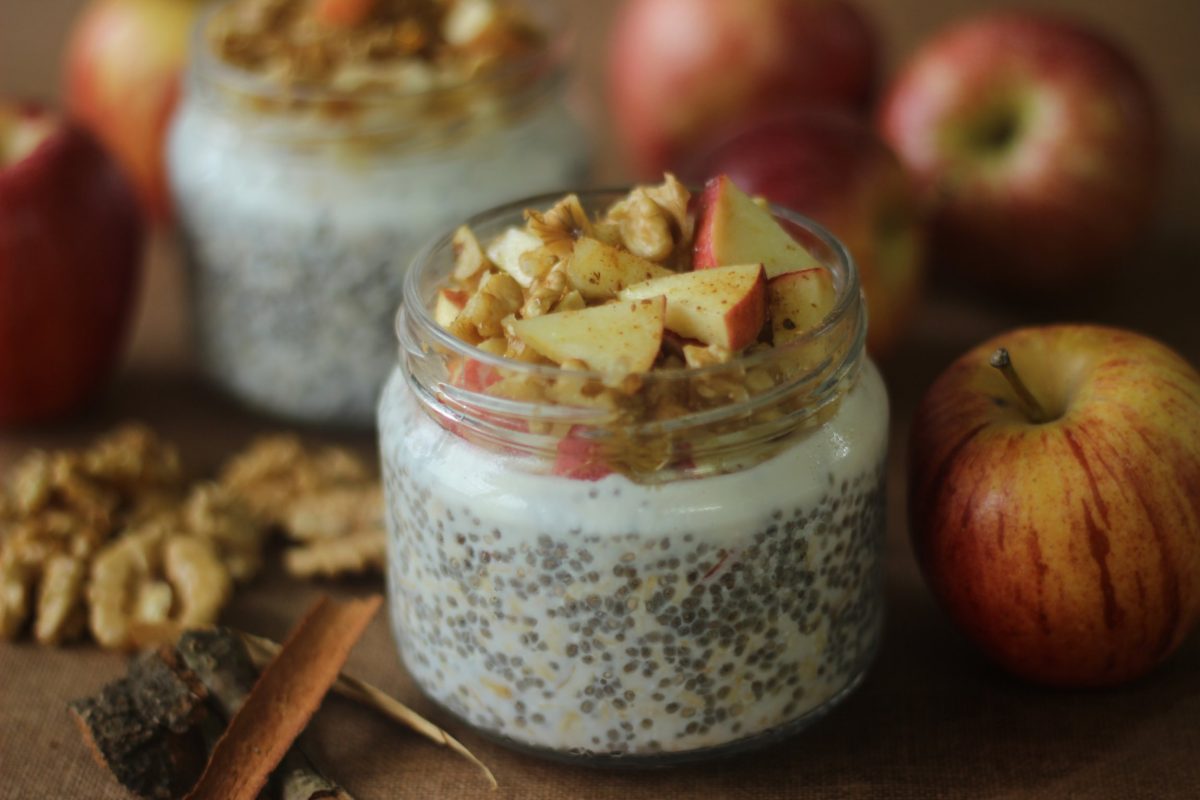Lifestyle
Transform Your Diet: 10 Delicious Swaps to Reduce Inflammation

Chronic inflammation, a persistent activation of the immune system, poses a risk for various health conditions, including type 2 diabetes, high blood pressure, and cardiovascular disease. Recent insights emphasize the significant impact of diet on this condition. According to Ruchi Bhuwania Lohia, a longevity nutritionist, the consumption of ultra-processed foods and those high in trans fats can lead to spikes in blood sugar and elevated insulin levels. This results in the release of cytokines, proteins that contribute to inflammation. Additionally, such foods can disrupt the gut microbiome, weakening the intestinal barrier and allowing inflammatory compounds into the bloodstream.
Conversely, certain foods can help mitigate inflammation. “Anti-inflammatory foods rich in omega-3 fatty acids, such as oily fish, nuts, and seeds, contain bioactive compounds that reduce oxidative stress and support a healthier gut lining,” Lohia explains. By making mindful dietary swaps, individuals can foster better health outcomes and promote overall wellbeing.
Ten Nutritional Swaps to Lower Inflammation
Nutritionists have identified several easy substitutions to enhance your meals while reducing inflammation. These swaps apply to breakfasts, snacks, and cooking essentials.
Start your day by replacing sugary breakfast cereals with chia pudding or overnight oats. Lohia suggests that these options are rich in protein and fibre, which stabilize blood sugar levels and mitigate inflammation caused by refined sugars. Consider adding berries, unsalted almonds, or walnuts for an extra anti-inflammatory boost. Chia seeds not only support gut health but also offer a plant-based source of omega-3 fats, antioxidants, calcium, and iron, promoting digestive function and potentially aiding in weight loss.
Another effective swap involves replacing breadcrumbs with crushed walnuts. Nutritionist Hannah Hope points out that traditional breadcrumbs made from white bread offer minimal nutritional value and can promote inflammation. Crushed walnuts provide a similar texture while being rich in alpha-linolenic acid, a plant-based omega-3 fatty acid. They also contain antioxidants like polyphenols and vitamin E, contributing to overall health.
For a creamy sauce, consider blending white beans instead of using traditional high-saturated fat options. Emma Shafqat, a paediatric dietitian, recommends this alternative as it offers a creamy texture along with fibre, plant protein, and polyphenols. White beans are also a source of essential vitamins and minerals, including folate and magnesium, and can be enhanced with garlic and lemon for flavor.
When craving a snack, instead of crisps, opt for roasted chickpeas. Nichola Ludlam-Raine, a dietitian and author, highlights that roasted chickpeas are high in fibre and plant-based protein, which help stabilize blood sugar levels and reduce inflammatory markers. Seasoned with spices such as turmeric or smoked paprika, these snacks not only satisfy cravings but also enhance anti-inflammatory properties.
More Simple Substitutions for Healthier Eating
For sandwich spreads, consider tahini instead of mayonnaise. Traditional mayonnaise often contains omega-6 fats, which can promote inflammation. Hope recommends tahini for its rich composition of calcium, magnesium, and anti-inflammatory compounds. Thin tahini with lemon juice, garlic, and olive oil for a healthy dressing that packs flavor and nutrients.
Switching from soy sauce to tamari can also benefit those with gluten sensitivities or inflammatory conditions. Tamari is typically less processed and undergoes fermentation, which is advantageous for gut health. It offers a similar savory taste without common allergens, making it a suitable alternative for those mindful of inflammation.
Canned soups often contain high levels of sodium and preservatives, so replacing them with homemade miso soup can provide a healthier option. Miso, a fermented soybean paste, is rich in probiotics that support gut health, thereby reducing chronic inflammation. Adding seaweed, such as nori, boosts the soup’s nutritional profile with iodine and antioxidants, while cubed tofu introduces isoflavones, which also help combat inflammation.
For pasta lovers, consider swapping white pasta for wholegrain spelt or lentil pasta. These alternatives are higher in magnesium and plant proteins, nutrients linked to better inflammatory regulation. Spelt pasta, with its nutty flavor, is more nutritious than traditional pasta, while lentil pasta has a lower glycaemic index, offering additional fibre and iron.
Finally, for salad dressings, replace creamy options with extra virgin olive oil and lemon juice. Ludlam-Raine notes that extra virgin olive oil contains oleocanthal, an anti-inflammatory compound similar in effect to ibuprofen. This simple swap not only enhances flavor but also adds vitamin C and polyphenols, which help protect cells from oxidative stress.
In conclusion, making these ten dietary swaps can significantly impact inflammation levels in the body. By incorporating more anti-inflammatory foods and reducing the intake of processed options, individuals can improve their health and wellbeing over time.
-

 Health3 months ago
Health3 months agoNeurologist Warns Excessive Use of Supplements Can Harm Brain
-

 Health4 months ago
Health4 months agoFiona Phillips’ Husband Shares Heartfelt Update on Her Alzheimer’s Journey
-

 Science2 months ago
Science2 months agoBrian Cox Addresses Claims of Alien Probe in 3I/ATLAS Discovery
-

 Science2 months ago
Science2 months agoNASA Investigates Unusual Comet 3I/ATLAS; New Findings Emerge
-

 Science2 months ago
Science2 months agoScientists Examine 3I/ATLAS: Alien Artifact or Cosmic Oddity?
-

 Entertainment2 months ago
Entertainment2 months agoLewis Cope Addresses Accusations of Dance Training Advantage
-

 Entertainment5 months ago
Entertainment5 months agoKerry Katona Discusses Future Baby Plans and Brian McFadden’s Wedding
-

 Science2 months ago
Science2 months agoNASA Investigates Speedy Object 3I/ATLAS, Sparking Speculation
-

 Entertainment5 months ago
Entertainment5 months agoEmmerdale Faces Tension as Dylan and April’s Lives Hang in the Balance
-

 World3 months ago
World3 months agoCole Palmer’s Cryptic Message to Kobbie Mainoo Following Loan Talks
-

 World4 weeks ago
World4 weeks agoBailey and Rebecca Announce Heartbreaking Split After MAFS Reunion
-

 Science2 months ago
Science2 months agoNASA Scientists Explore Origins of 3I/ATLAS, a Fast-Moving Visitor









